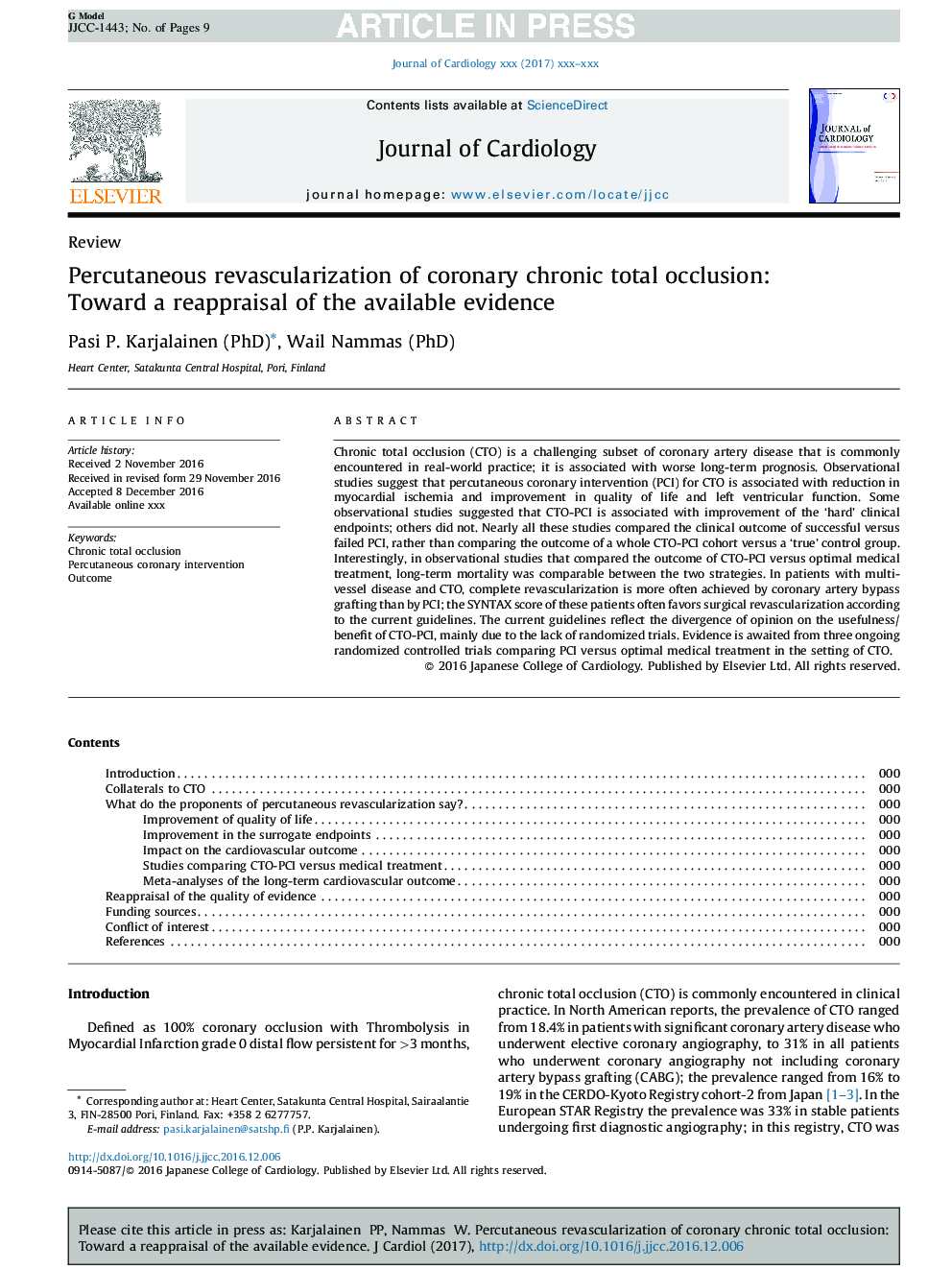| Article ID | Journal | Published Year | Pages | File Type |
|---|---|---|---|---|
| 5614617 | Journal of Cardiology | 2017 | 9 Pages |
Abstract
Chronic total occlusion (CTO) is a challenging subset of coronary artery disease that is commonly encountered in real-world practice; it is associated with worse long-term prognosis. Observational studies suggest that percutaneous coronary intervention (PCI) for CTO is associated with reduction in myocardial ischemia and improvement in quality of life and left ventricular function. Some observational studies suggested that CTO-PCI is associated with improvement of the 'hard' clinical endpoints; others did not. Nearly all these studies compared the clinical outcome of successful versus failed PCI, rather than comparing the outcome of a whole CTO-PCI cohort versus a 'true' control group. Interestingly, in observational studies that compared the outcome of CTO-PCI versus optimal medical treatment, long-term mortality was comparable between the two strategies. In patients with multi-vessel disease and CTO, complete revascularization is more often achieved by coronary artery bypass grafting than by PCI; the SYNTAX score of these patients often favors surgical revascularization according to the current guidelines. The current guidelines reflect the divergence of opinion on the usefulness/benefit of CTO-PCI, mainly due to the lack of randomized trials. Evidence is awaited from three ongoing randomized controlled trials comparing PCI versus optimal medical treatment in the setting of CTO.
Related Topics
Health Sciences
Medicine and Dentistry
Cardiology and Cardiovascular Medicine
Authors
Pasi P. PhD, Wail PhD,
